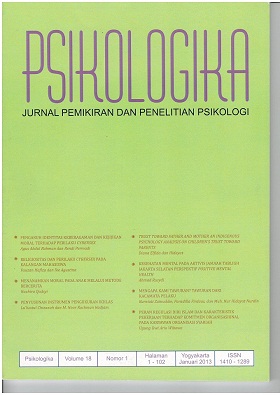Main Article Content
Abstract
This study aims to look at what the motive actors participating in the brawl, brawl how their perceptions, what they expect from the fight, as well as their feelings after the brawl passed. The study was conducted in Makassar using a qualitative approach, the student respondents were involved in fighting the two faculties are most frequently involved in brawls action Makassar State University, the Faculty of Engineering and the Faculty of Arts and Design. Results showed that participants recognize that fighting is not tepuji action and not supposed to do. The actors involved in fighting for reasons that are divided into three categories, namely because they feel trapped brawl situation, a sense of solidarity, and as a senior call. In addition, they recognize that fighting is unacceptable behavior and do not deserve them, but because they feel actors participate brawl was caught in a brawl tradition. It is then a perpetrator motive. Things that become expectations of actors during and after the fight is to prove that they are solid and strong, so respected, so that the opponent deterrent and uphold
Keywords: brawl, students
Article Details
Authors who publish with this journal agree to the following terms:
- Authors retain copyright and grant the journal right of first publication with the work simultaneously licensed under a Creative Commons Attribution-ShareAlike 4.0 International License that allows others to share the work with an acknowledgment of the work's authorship and initial publication in this journal.
- Authors are able to enter into separate, additional contractual arrangements for the non-exclusive distribution of the journal's published version of the work (e.g., post it to an institutional repository or publish it in a book), with an acknowledgment of its initial publication in this journal.
- Authors are permitted and encouraged to post their work online (e.g., in institutional repositories or on their website) prior to and during the submission process, as it can lead to productive exchanges, as well as earlier and greater citation of published work (See The Effect of Open Access).




